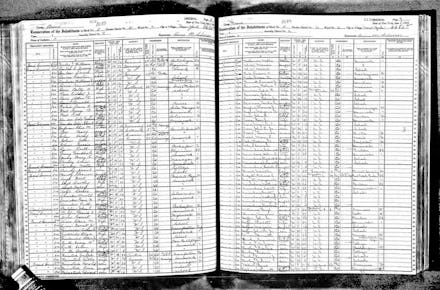How Your Family's Class Predicts Your Success, in 2 Charts

Few myths are as pervasive in the American imagination as the "Horatio Alger" story. If you come from abject poverty, with enough pluck, determination and hard work, you can succeed in America. We've held this belief for as long as pollsters have been asking, and we've maintained it regardless of the strength of our economy.
But is it true? And more importantly, does it remain true over time? According to new research from UC Davis economics professor Gregory Clark, long-term class mobility is far less common than most of us would expect:
"When you look across centuries, and at social status broadly measured — not just income and wealth, but also occupation, education and longevity — social mobility is much slower than many of us believe, or want to believe. This is true in Sweden, a social welfare state; England, where industrial capitalism was born; the United States, one of the most heterogeneous societies in history; and India, a fairly new democracy hobbled by the legacy of caste. Capitalism has not led to pervasive, rapid mobility. Nor have democratization, mass public education, the decline of nepotism, redistributive taxation, the emancipation of women, or even, as in China, socialist revolution."
Capitalism is surely better than feudalism or monarchy when it comes to giving the poor a chance to escape poverty and servitude, but when we consider the long view, it's not by much:
"To a striking extent, your overall life chances can be predicted not just from your parents' status but also from your great-great-great-grandparents.' ... The fortunes of high-status families inexorably fall, and those of low-status families rise, toward the average — what social scientists call 'regression to the mean' — but the process can take 10 to 15 generations (300 to 450 years), much longer than most social scientists have estimated in the past."
Image Credit: Gregory Clark/New York Times
These findings might also help to contextualize the cultural, educational and social factors that have contributed to the endemic poverty that has plagued America's black community since the Emancipation Proclamation. The study's authors looked at social mobility among former slaves in America, and they found that "even 200 years from now the descendants of enslaved African-Americans will still be underrepresented" among upper-class Americans.
Image Credit: Gregory Clark/New York Times
The results run counter to a major American narrative.